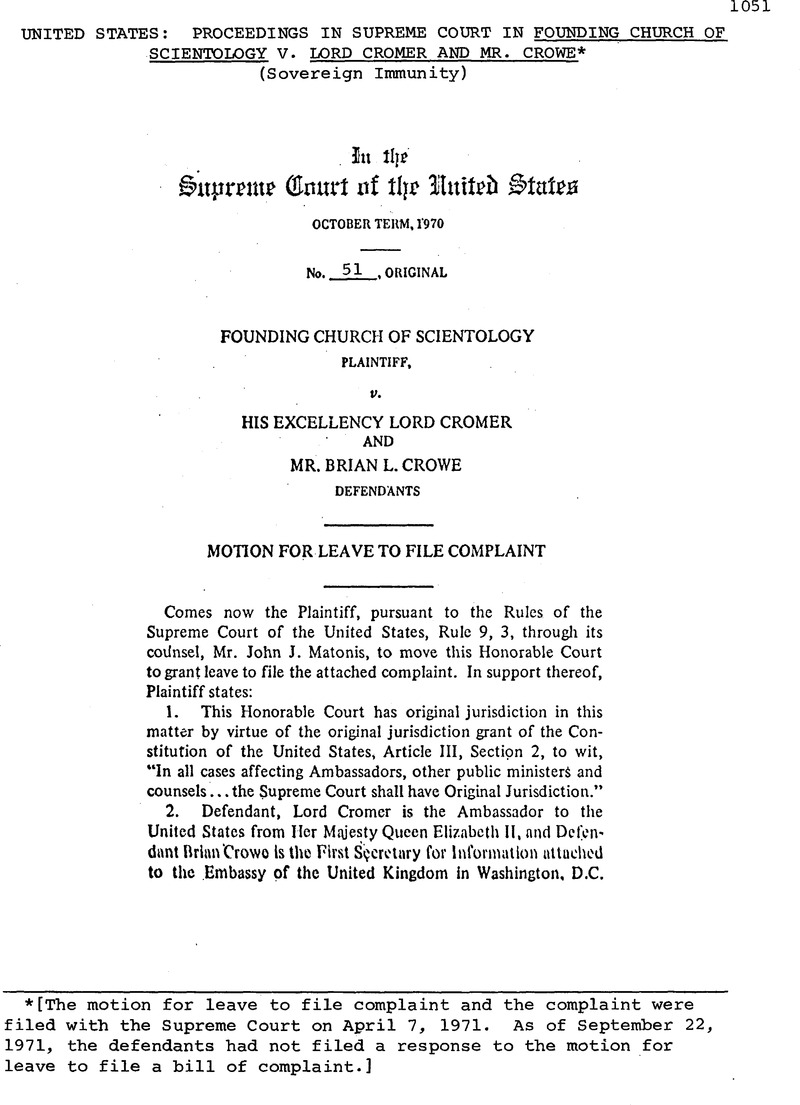No CrossRef data available.
Published online by Cambridge University Press: 04 April 2017

[The motion for leave to file complaint and the complaint were filed with the Supreme Court on April 7, 1971. As of September 22, 1971, the defendants had not filed a response to the motion for leave to file a bill of complaint.]
1 Article III, section 2 of the Constitution grants this Court original jurisdiction “[i]n all cases affecting Ambassadors, other public Ministers and Consuls * * *. 28 U.S.C. 1251(a) (2) provides that the Court shall have original jurisdiction of “[a]ll actions or proceedings against ambassadors or other public ministers of foreign states * * * not inconsistent with the law of nations.”
2 A copy of this note is reproduced infra as Appendix A to this memorandum.
3 The provision was first enacted on April 30, 1790, 1 Stat. 117, and was derived in turn from the statute 7 Anne, C. 12. See hi Re Baiz, 135 U.S. 403, 420; 6 Whiteman, Digest of International Law 403-412. The most recent international expression of the principlo of diplomatic immunity is the Vienna Convention on Diplomatic Intercourse and Immunities, Articles 22, 29-32. See 55 Am. J. Intl. L. 1062. The United States has signed this convention although it has not yet ratified it. Approximately 90 other nations have ratified the convention.
4 Certifications, by the Chief of Protocol of the United States, of the diplomatic status of Lord Cromer and Mr. Crowe are reproduced infra as Appendices B and C to this memorandum.
5 The method by which the attempt to serve process evidently was made in this case—by leaving the motion and complaint at the front door of the Embassy—did not, in any event, comply with Eule 33 of the Kules of this Court. 22 U.S.C. 253 provides that “[w] lie-never any writ of process is sued out in violation of section 252 * * * every person by whom the same is obtained or prosecuted, whether as [a] party or as attorney or solicitor, and every officer concerned in executing it, shall be deemed a violator of the laws of nations * * * and shall be imprisoned for not more than three years, and fined at the discretion of the court.”